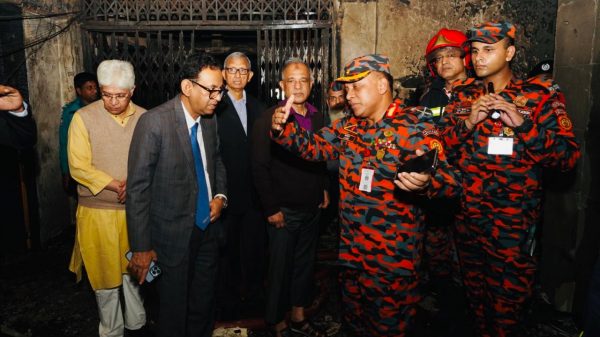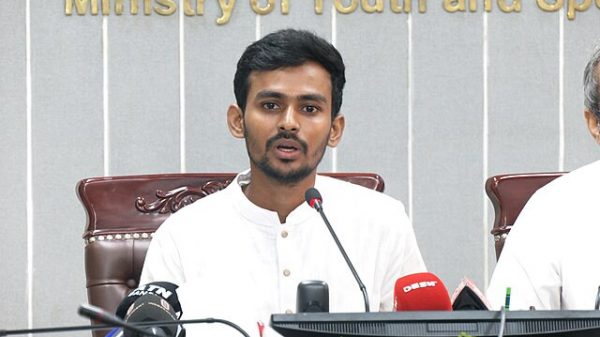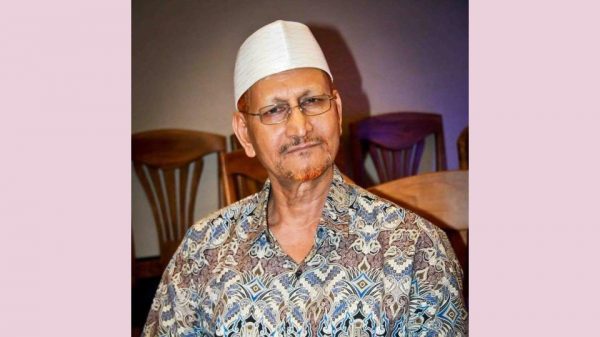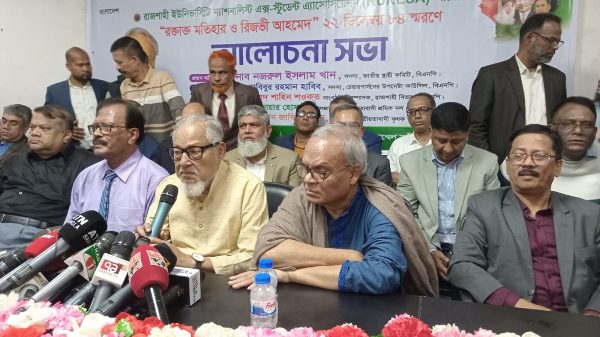Many Faces of Corruption

When Prime Minister Sheikh Hasina talks about the prevailing corruption in the country, she is very emphatic and in clear terms declares that when it comes to corruption her policy is ‘zero tolerance.’ But in reality it seems she is the lone ranger in the crusade against prevailing spread and all pervasive corruption in Bangladesh. Those in charge of taking action against corruption and corrupt people are either reluctant or just incapable of taking any visible action. The government has two very important institutions in-charge of monitoring and taking action against corruption – National Board of Revenue (NBR) and Anti Corruption Commission (ACC). The Bangladesh Bank is also entrusted to monitor the affairs of the commercial banks of the country. But so far both of these organizations have failed miserably in doing what they are supposed to do. Their activity often ends with filing cases against alleged corrupt people and institutions and because of our archaic colonial legal and judicial system hardly the cases end with any tangible result or the perpetrators being punished.
When it comes to corruption, it is not only about fiscal or monetary corruption or siphoning out money from the country illegally but there are other corrupt practices that hurt common people. Those involved in such practices are too powerful and are always left out from the net of the government’s anti corruption drives.
A private university hires an expatriate Vice-chancellor who has no or little knowledge about the education system in the country and is paid a hefty salary, from available sources it amounts to US$ 25 thousand. He stayed in one of the most expensive star rated hotel in Dhaka and gives a damn about the Higher Education Regulatory bodies like UGC or Ministry of Education and allegedly bypasses the norms and practices of the laws and rules in running the university. As the university happens to be an institution established and run by another high profile person, the law cannot reach this university. The country may not have a huge pool of local academicians who are qualified to be appointed as a Vice-chancellor in such a university but there are still a good number of academicians who can be appointed as a Vice-chancellor to give academic and administrative leadership to such a university.
Many private university Boards erroneously think that giving a ‘phoren’ touch increases the equity of their university. The main purpose for hiring such over rated expatriates to head universities or even teach a course is just finding a way to illegally siphon money out of the country. The university accounts can readily give a figure as to how much salary and other perks are given to a foreigner in the country but will not disclose the figure how much money in addition is siphoned out to supplement the legal monetary benefits to any particular expatriate. There are even incidents where Indian’s were recruited to teach history in Bangladesh in some of such universities!
Quite a few private universities have expatriate faculty members. Once, the University Grants Commission asked for the details of these expatriate faculty members along with their appointment letters and bank account numbers. The response was lukewarm. A high profile private university has gained notoriety because of robbery of the Board Members from the university funds collected from its students. The directors purchase expensive cars for their private use, travel with family in business class and stay in five star hotels in the name of attending Board meeting held in Singapore or Sydney or going on a so called study tour, all paid from the university funds. They also take out from the university fund a staggering amount of money in the name of sitting allowances for attending internal meetings. Recently the University Grants Commission has issued a directive as to how much allowance can a member take as sitting allowance but it remains to be seen as to how much of this directive will be honoured by this particular university. The students enrolled in this university pays huge amount of money as tuition. If only the robbery by the Board Members could be stopped the same students could study at much lesser cost. Quite a few enquiries were done by the UGC about these corrupt practices and findings submitted to the Ministry of Education but the reports were never given the attention it deserved or any action taken against anybody and the robbery and corruption continues unabated.
This is a simple sample of how corruption or malpractices are eroding the potential of building meaningful higher education providing institutions in the private sector in this country. Few perpetrators are enough to destroy any sector as it has already happened in the banking sector of Bangladesh.
Recently Transparency International Bangladesh (TIB) in a press briefing disclosed that some US$ 3.1 billion or about Taka 26,400 crore is being illegally remitted from Bangladesh a year by foreigners working in this country, many of them illegally. Though often TIB reports are flawed because of methodology and intention, this is one report which deserves attention though it seems the report is quite conservative. From earlier disclosed figures the amount of money taken out of Bangladesh illegally by foreigners is somewhere around US$ 5 billion. TIB also reported that 1.6 lakh foreign nationals became gainfully employed in Bangladesh after entering the country on a tourist visa. The foreigners enter Bangladesh on a three-month tourist visa and manage jobs, especially in readymade garments, IT and service sectors. These illegal workers come from India, Pakistan, Nepal, Sri-Lanka, Thailand, China, Taiwan, Hong Kong, and from countries of Africa and some even from faraway places in Latin America. Earlier published reports also said that bulk of these illegal workers come from India due to ease of entry into Bangladesh and many common characteristics and habits like language, food habit, similarity in appearance amongst the common people of both the countries. Earlier reports also disclosed that Bangladesh happens to be the second largest foreign exchange remitting country for India after Middle East (especially from Saudi Arabia and UAE).
When the tourist visa of illegal workers expire after three months they go back to their home country and return with a fresh three-month tourist visa and continue with their jobs in Bangladesh. These illegal immigrants work in Bangladesh in connivance with their local employers and according to the TIB report as the money these expatriate workers illegally remit they defraud the government by not paying the taxes due on their income and the government loses every year an estimated amount of US $1.35 billion. The actual figure is quite high. Along with these illegal expatriate workers the employers also find it convenient to siphon huge amount of money from the country often in connivance with these illegal workers.
Many would like to questions when the country has so many ‘educated’ young people looking for jobs, why do employers employ such illegal workers often paying a high salary? The answer is very simple. The country may have a huge number of unemployed ‘educated’ young people but the truth is these ‘educated’ unemployed are unemployable in most cases as they lack the skill and attitude to work in a particular job. Our job seekers are more interested in working in cosy offices of a multinational company but are not comfortable working as supervisors in a readymade garments factory or in a service providing organization. Once I managed to get a job for a graduate in a leading pharmaceutical company in Savar. The young man was a pharmacy graduate from a good university. The initial salary and other perks were good. The company provided with transport for its employees commuting from the city. After about two months this young man quit his job. He wanted to work in the Marketing Department in the city office. This was two years back. The young man, now in his mid thirties is still looking for a ‘suitable’ job. Here we have an attitude problem and the employers in Bangladesh take advantage of such situation and feel comfortable in hiring foreigners to work in their business houses. Our education institutions and the system itself are more interested in grades and image of the colleges and universities and not in what makes an employable graduate. Bangladesh’s education system needs a complete overhaul so that it can produce employable graduates rather than only certificate holders. Till this is done, corruption will continue in educational institutions, illegal foreigners will be recruited by the employers and huge amount of money will be illegally siphoned out of the country both by these illegal workers and their employers and the government agencies which are mandated to oversee such malpractices will just be onlookers.
The writer is an analyst and a commentator.





























Leave a Reply